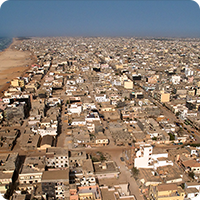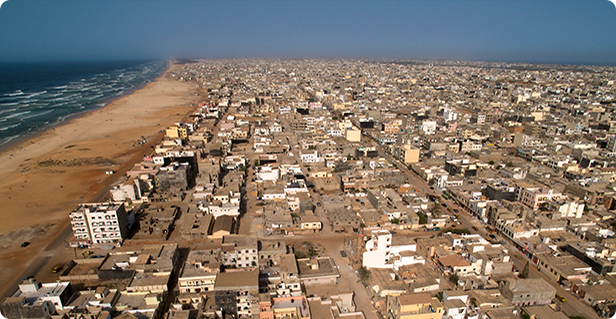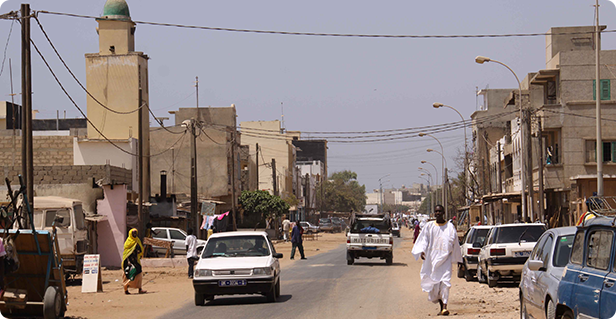Did you know that Thursday the 19th of November 2015 was World Toilet Day. While it may seem like and odd, or maybe even humorous, thing to dedicate to a day, its very serious. There are 2.4 billion people on the planet who lack access to proper sanitation. An issue which can lead to serious illness issues in some of the worlds poorest countries.
The capital of Senegal, Dakar, has a waste management reputation that is is poor to say the least, with 80% of the cities people currently using pit latrines. This is far from an ideal situation as they can often get full and stay full for extensive periods of times, resulting in people digging makeshift holes around their house to transfer the waste into. Eventually, when the rainy season arrives this causes major health issues, causing all the faeces to spill out into the open. This can have dire consequences on the health of locals, particularly children who like to play in the street.
Aside from the lack of sanitation that can result from these latrines, they also are extremely costly to empty, forcing the pit emptiers’ association to seek cheaper alternatives, often at the cost of the environment and even their own health. As a result of these issues, a pioneering joint SMS service and waste treatment system are aiming to dramatically decrease sanitation costs in Senegal’s capital. As an added benefit, if they succeed customers may even make a small profit from their waste rather than having to pay someone for its for removal.
The text messaging service, which shares many similarities with the Uber taxi app, has a customer database of 65,000, who can each send an SMS whenever their pits need emptying. Upon receiving a text message, the computer sends out a tender to all the pit emptiers in the vicinity of the full pit, resulting in a bidding war for the waste. This “Uber-ification” of waste management services has crippled the informal pit emptier’s union, who fixed high prices for a job which lacked proper regulations by the government. In the first year of the service alone, the average cost of emptying pit latrines decreased dramatically from $150 to $90 a year. This saving is even more significant when we take into account that many of these latrine users are earning less than $2 per day. However, it doesn’t stop there, the service is aiming to eventually run at a cost of just $60 per year, almost a third of the original expense of emptying pits.
This recent development in waste management comes as countries prepare to adopt the sustainable development goals, including achieving access to equitable and adequate sanitation and hygiene for all, putting a stop to all open defecation by the year 2030. This is a particularly tall order for Dakar, which is the seventh fastest growing city in Africa, with its population estimated to double to four million over the next 15 years according to the African Development Bank. ONAS claims that Dakar produces an estimated 1,500 cubic meters of faecal sludge per day, yet only 1,100 cubic meters are collected and treated in waste management plans. This means that an astonishing 400 cubic meters are being dumped in the ground, in the sea or on beaches every single day.
Though the lack of sanitation means that private companies can intervene, inflation of costs due to issues with police harassment and fuel and repair expenses can often cause issues. Doily Kone from the Bill and Melinda Gates Foundation, which invested in developing this new SMS system and also committed to providing financial support to pit emptiers to purchase improved vehicles and equipment has expressed that it isn’t just about making sanitation sexy, but also profitable. Initial goals are to demonstrate the possibility to structure pit-emptying series for poor communities by implementing market and business innovation.
The new service faces many challenges, most of which revolve around the complexity of safely collecting and transporting the waste from pit latrines to the treatment plant. One of the major issues is that many of the pits are down extremely narrow alleys, which are almost entirely inaccessible for the large emptying trucks. Furthermore the waste processing plants themselves are very far away from people’s homes, as understandably no one wants to live near them, meaning a solid business model for waste collection is necessary. Some of these challenges are being met with the SMS service and financial aid being provided to the emptiers, however close observation of the system will be required for success across the entire city.
SMS solutions to the waste issues may be the first step in resolving the waste issues of Senegal.



